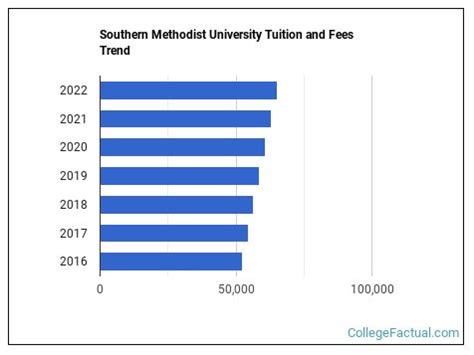Singapore Management University (SMU) is an esteemed institution of higher education renowned for its academic excellence and international reputation. For prospective students, understanding the university’s fee structure is crucial for planning their financial commitments. This comprehensive guide provides a detailed analysis of SMU’s tuition fees, miscellaneous charges, and available financial aid options.

Tuition Fees
SMU’s tuition fees vary depending on the academic program and level of study. According to the university’s website, undergraduate tuition fees for the academic year 2023/2024 range from SGD 22,000 to SGD 42,000 per year. Postgraduate tuition fees typically range from SGD 28,000 to SGD 48,000 per year.
Annual Tuition Fees for Undergraduate Programs
| Program | Tuition Fee (SGD) |
|---|---|
| Accountancy | 26,000 |
| Business Management | 26,000 |
| Economics | 28,000 |
| Information Systems | 28,000 |
| Law | 42,000 |
| Social Sciences | 22,000 |
Annual Tuition Fees for Postgraduate Programs
| Program | Tuition Fee (SGD) |
|---|---|
| Master of Business Administration (MBA) | 48,000 |
| Master of Science in Finance | 28,000 |
| Master of Science in Information Systems | 35,000 |
| Master of Economics | 35,000 |
| Master of Law (LL.M.) | 35,000 |
Miscellaneous Charges
In addition to tuition fees, SMU students may also incur miscellaneous charges, including accommodation, health insurance, and administrative fees. Accommodation costs vary depending on the type of housing and proximity to the university. Health insurance premiums for international students are estimated to be around SGD 600 per year. Administrative fees, such as registration and exam fees, typically range from SGD 200 to SGD 500 per year.
Financial Aid
SMU offers a range of financial aid options to support students with financial need. These include merit-based scholarships, need-based bursaries, and study loans.
Merit-Based Scholarships
Merit-based scholarships are awarded to high-achieving students who demonstrate academic excellence and leadership potential. The value of scholarships varies depending on the criteria and availability of funds.
Need-Based Bursaries
SMU offers need-based bursaries to students from low-income families. The amount of bursary awarded is based on the student’s financial need.
Study Loans
SMU has partnered with several financial institutions to offer study loans to students who need additional financial assistance. Interest rates and repayment terms vary depending on the lender.
Tips and Tricks for Saving on Tuition Fees
- Apply for scholarships and bursaries: Research and apply for various scholarships and bursaries offered by SMU and external organizations.
- Negotiate with the university: In some cases, you may be able to negotiate with the university for a reduction in tuition fees.
- Explore part-time work opportunities: Consider working part-time on or off-campus to supplement your income and cover some expenses.
- Take advantage of discounts: Ask the university about any discounts or fee waivers that may apply to your situation.
Pros and Cons of SMU University Fees
Pros:
- Competitive tuition fees: Compared to other private universities in Singapore, SMU’s tuition fees are relatively affordable.
- Financial aid options: SMU offers a range of financial aid options to support students with financial need.
- Scholarships for international students: International students are eligible to apply for a variety of scholarships, including the SMU Global Excellence Scholarship.
Cons:
- Higher than public universities: Tuition fees at SMU are higher than at public universities in Singapore.
- Limited part-time work opportunities: The university has a small campus and limited part-time work opportunities for students.
- No government subsidies: Unlike public universities, SMU does not receive government subsidies, which contributes to its higher tuition fees.
FAQs
1. What is the average cost of attending SMU per year?
The average cost of attending SMU per year, including tuition fees and miscellaneous charges, is estimated to be around SGD 40,000 to SGD 60,000.
2. What are the eligibility criteria for financial aid at SMU?
Financial aid at SMU is based on financial need and academic merit. Students must meet certain eligibility criteria, such as having a good academic record and demonstrating financial need.
3. Can international students apply for financial aid at SMU?
Yes, international students are eligible to apply for financial aid at SMU. However, the availability of aid may be limited and subject to specific criteria.
4. What is the deadline for applying for financial aid?
The deadline for applying for financial aid at SMU is typically in June or July of the year prior to enrollment.
5. What are the repayment terms for study loans?
The repayment terms for study loans vary depending on the lender. However, most loans require students to start making payments once they complete their studies and secure employment.
6. Can I defer my tuition fees?
SMU offers a tuition fee deferment scheme that allows students to defer their tuition payments until after they complete their studies and secure employment.
7. What is the estimated cost of accommodation near SMU?
The estimated cost of accommodation near SMU varies depending on the type of housing and proximity to the university. On-campus accommodation typically costs between SGD 800 and SGD 1,200 per month, while off-campus housing costs can range from SGD 1,000 to SGD 2,000 per month.
8. Are there any discounts or fee waivers available for SMU students?
SMU offers a 5% discount on tuition fees for students who pay their fees in full by a specified deadline. Additionally, the university may offer fee waivers or reductions to students who demonstrate financial hardship or have special circumstances.
